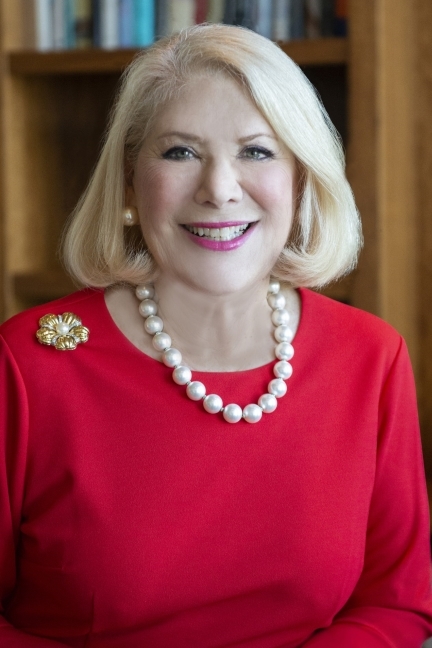by Jill Wine-Banks
Obstruction of justice, the specter of impeachment, sexism at work, shocking revelations: Jill Wine-Banks takes us inside her trial by fire in The Watergate Girl as a Watergate prosecutor. Read an excerpt below.

Like the rest of the nation, I’d been gripped by the Watergate scandal from the moment—less than a year earlier—when news broke of a group of men in business suits and surgical gloves, carrying fancy cameras and hundred-dollar bills, who were caught breaking into the Democratic Party’s headquarters. I’d followed the stunning reporting on the case by Bob Woodward and Carl Bernstein, of the Washington Post, with awe and a touch of wistfulness. My original ambition had been to be a journalist, and I still thought of news reporters as shining protectors of democracy. I’d been a news junkie for as long as I could remember. I majored in journalism at the University of Illinois at Urbana-Champaign, and as the chapter president of my sorority, Iota Alpha Pi, I started a rotation among the freshman pledges: every night at dinner one of them had to stand up and deliver a summary of the day’s Headlines.
The pioneering and glamorous TV journalist Nancy Dickerson was my idol. I met her when she spoke to the group of freshmen being honored for our achievement in campus activities. At the start of her career in the early 1950s, Dickerson had turned down a job as the women’s editor of the Washington Daily News because, as she wrote in her memoir Among Those Present, she wanted to change the world and it was impossible to do that writing “shopping and food columns.” She went on to cover Martin Luther King Jr.’s “I Have a Dream” speech and the assassination of President John F. Kennedy. I, too, wanted to avoid the so-called women’s pages. Before meeting her, most of the working women I knew were teachers and social workers. Dickerson made me see other possibilities.
I got the idea that a law degree would be a stepping-stone to serious journalism from a book I read for a political science class, Gideon’s Trumpet by Anthony Lewis of the New York Times. When I read on the back of the book—about a landmark case involving the rights of defendants to counsel—that Lewis had attended Harvard Law School I decided, not very logically, that law school would help me in journalism, too.
I hated my first year at Columbia Law and took a leave to try working in journalism. To some extent, I was right about law school helping me achieve that goal: I was hired to write a political newsletter and help lobby the US Congress on behalf of the Assembly of Captive European Nations (ACEN), an anti-communist coalition representing nine nations that had come under Soviet domination after World War II. The work wasn’t as stimulating as I’d hoped—though it may have made me an indirect hire of the CIA, as funding for the ACEN came from the Free Europe Committee, which was later revealed to be a CIA front organization. Also, I don’t like leaving anything unfinished, so after a year I decided to go back to Columbia.
On my return, I warmed to the law, at least the advocacy part of it. Though I never excelled in academic legal studies, I won the national moot court competition for best brief and thrived in a course on trial practice, where I discovered I had a talent for thinking on my feet and for organizing and building the evidence that favored my client.
Winning cases in the real world thrilled me. I loved my job at the Department of Justice. Still, when James Vorenberg called, I was very interested. Overnight, I weighed the pros and cons. The Watergate break-in could be the start of a spectacular political crime reaching all the way to the president, or it could turn out to be nothing more than an odd burglary. But even if the investigation fizzled, my participation would likely amount to no more than a minor disruption in the flow of my career, and the timing was right for making a change. For aspiring trial lawyers like me, it was common to work at the Justice Department for five years to get great courtroom experience, and then to make the transition to private practice. After five years, the law of diminishing returns kicked in. If you waited too long to join a firm, the partners would see you as overqualified to be an associate.
By morning, I’d decided. I wanted the job as an assistant Watergate special prosecutor.
Copyright © 2021 by Jill Wine-Banks
Jill Wine-Banks is an MSNBC legal analyst, appearing regularly on the network’s primetime and daytime shows. She began her career as an organized crime prosecutor at the U.S. Department of Justice, which led to her selection as one of three assistant Watergate special prosecutors in the obstruction of justice trial against President Nixon’s top aides. She has also served as general counsel of the U.S. Army, solicitor general and deputy attorney general of the state of Illinois, and chief operating officer of the American Bar Association. In each case, she was the first woman to hold the position. A graduate of the University of Illinois and the Columbia Law School, she lives in Chicago.
